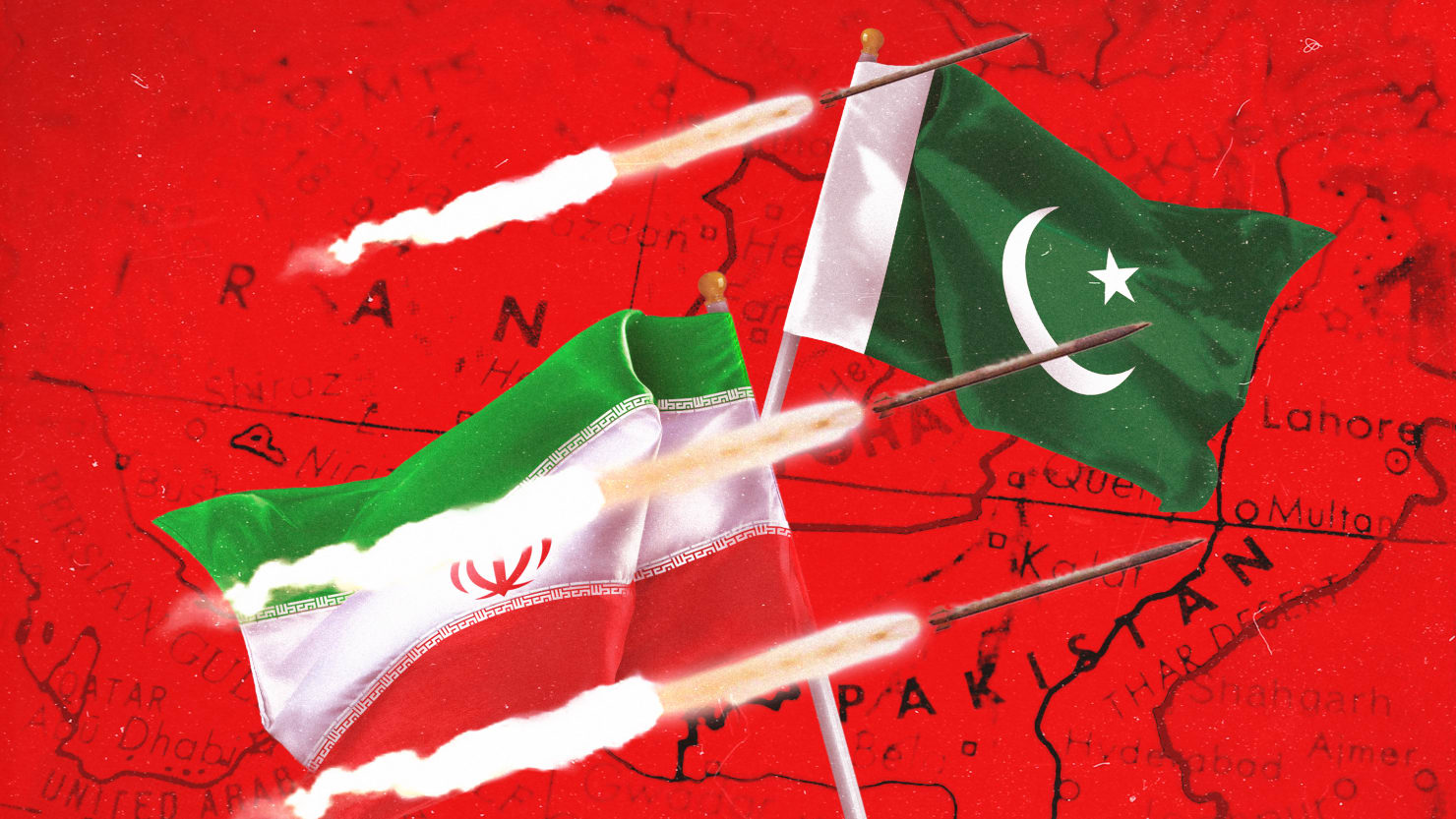KARACHI, Pakistan—In an unprecedented act, Iran on Tuesday attacked the alleged bases of a jihadist group with a missile and drone strike in Pakistan‘s southwestern Balochistan province, which shares long borders with Iran.
The biggest question arises here, how will the nuclear-armed Pakistan respond to the violation of its sovereignty by Iran?
The timing of this attack against Pakistan is intriguing. It comes at a time when the Middle East is already inflamed by Israel–Hamas conflict. And a day before opening a new front with Pakistan, Iran launched strikes on Iraq and Syria. A befitting response from Pakistan to the Iranian strike could further spread the wave of destabilization across the already volatile region.
Pakistan has, however, little room for retaliation due to the China factor. Islamabad cannot retaliate without taking China into confidence. What It can do—and what it is actually doing—is all on the diplomatic front.
Islamabad has strongly condemned the unprovoked violation of its airspace by Iran, recalled its ambassador from Iran, and suspended all high-level visits which were ongoing or were planned between Pakistan and Iran in the coming days. In a telephone conversation on Wednesday, Pakistan’s caretaker Foreign Minister Jalil Abbas Jilani stressed Pakistan’s right to respond with his Iranian counterpart.
Pakistan needs Chinese approval because China would be the ultimate affectee or victim of an Iran-Pakistan conflict, as it has heavily invested in Pakistan (particularly in its Balochistan province) and it plans to invest up to $400 billion in Iran under a strategic partnership deal it signed in 2020 with Tehran. Moreover, China last year brokered a historic peace deal between Saudi Arabia and Iran.
Beijing will definitely use its leverage on both countries to press them to resolve their issues on the table.
An Iran-Pakistan conflict will further destabilize the insurgency-hit Balochistan, where China is the biggest foreign investor. The $60 billion China-Pakistan Economic Corridor (CPEC)—which involves the construction of highways, railways and energy pipelines connecting Pakistan’s Gwadar port in Balochistan with Kashgar in China’s Northwestern Xinjiang province—is the flagship project of China’s Belt and Road (BRI) initiative. China is the builder and operator of the Gwadar Port in Balochistan.The port is strategically located on the mouth of Persian Gulf and at the apex of the Arabian Sea, close to the Strait of Hormuz, the global oil trade conduit. Any escalation in Pak-Iran tensions will put Chinese stakes in Balochistan at stake.
The Pak-Iran border is oft-plagued by unrest from separatist and sectarian militants. It has been a center of terrorist activities by Baloch separatist groups and Islamist militants. Both countries have for long engaged in a blame game—accusing each other for sheltering the terrorist groups in border areas.
Pakistan’s Balochistan province borders Iran’s province of Sistan-Baluchistan, and the Pakistani province reels from a separatist Baloch insurgency. Baloch separatist groups such as Balochistan Liberation Front (BLF) and Baloch Liberation Army (BLA), have been targeting Pakistan’s security forces and the Chinese nationals engaged in development projects in Balochistan.
Islamabad has long alleged that separatist groups are using Iranian soil for launching attacks on Pakistan, and it has repeatedly raised the issue with Tehran. For example, in Jan. 2022, ten Pakistani soldiers were killed in an attack by Baloch separatists at a security forces’ check post in Balochistan’s Kech district, which is hardly 15 kilometers from the Iranian border.
On the other hand, Iran allegedly targeted the bases of Jaishul Adl (JA)—a Sunni Muslim militant group that is fighting for the rights of both the Baluch and Sunnis in Iran where Shiite Muslims are a majority—and allegedly operates with the support from some Baloch tribes in Pakistani Balochistan. It has allegedly been involved in launching terror attacks on Iranian security forces. In 2018, JA abducted 12 Iranian security personnel in Sistan-Baluchistan province.
The security challenges continue to emerge from the volatile Pakistan-Iran border, but never before had an attack been unilaterally launched from either country against its neighbor.
In the past, both sides had de-escalated border tensions through negotiations. In 2019, the two neighbors agreed to fence their 900 kilometer border for better security management. In 2022, both nations agreed to form a joint working group to oversee border management and security mechanisms at their shared border.
Last June, the two countries raised their border security issues in the first trilateral meeting of China, Pakistan, and Iran held on counter-terrorism in Beijing. Iran could have raised the issue regarding JA bases in the trilateral forum.
In other words, Iran did not get China’s approval before hitting a target inside Pakistan. But Pakistan is unlikely to launch a reprisal attack against Iran (perhaps directed at the bases of separatist Baloch outfits inside Iran) without a green light from China—which would not see further unrest in the region as in its interests.



